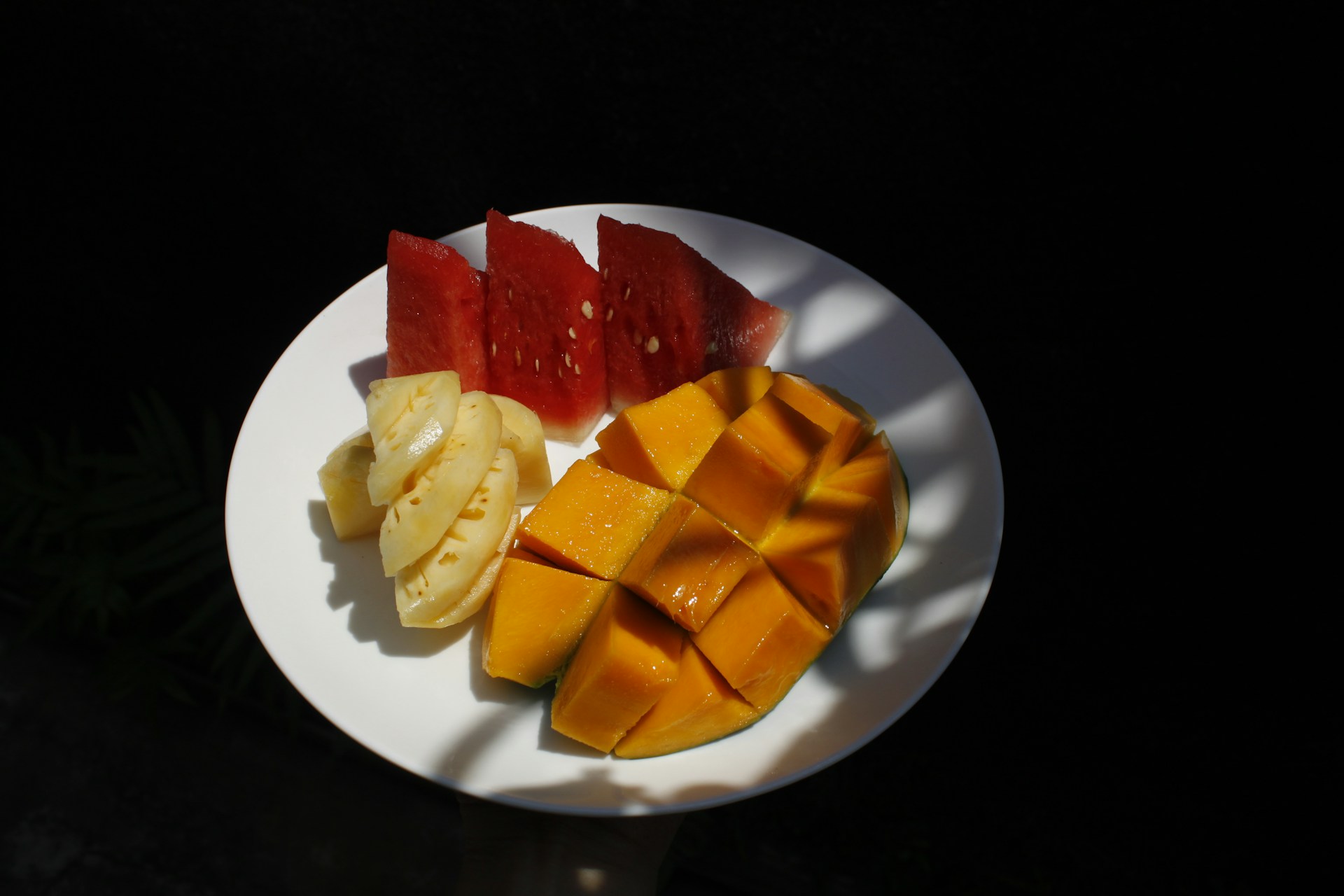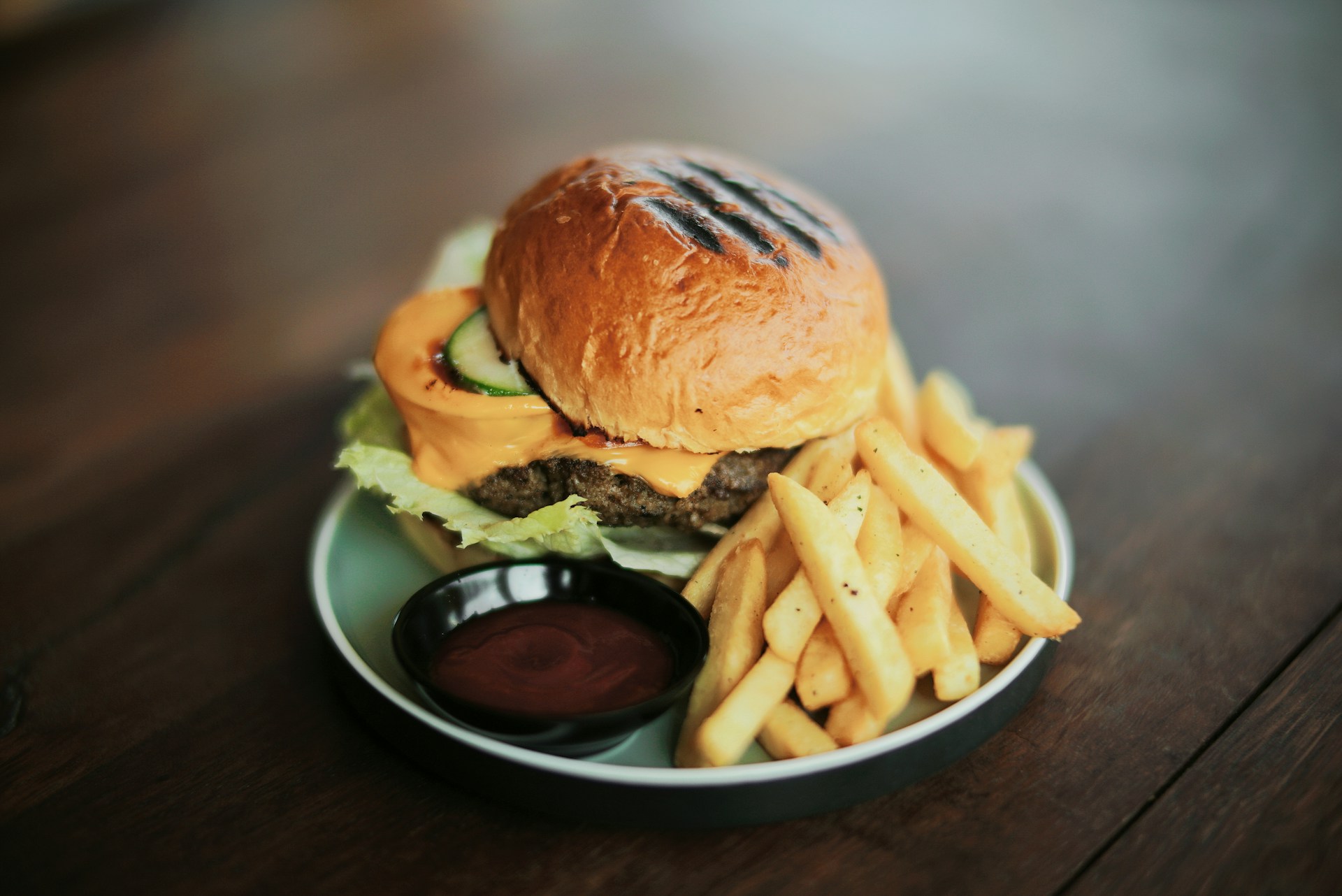Nutritional Content and Benefits of Coconut Water for the Diabetes Metabolism: a Narrative Review
Kandungan Gizi dan Manfaat Air Kelapa terhadap Metabolisme Diabetes: Kajian Naratif

Downloads
Background: Coconut water is one of the natural food products that is widely available around the world. This commodity provides nutritional content that could increase rehydration status and improve health. The application of coconut water to health, including improving type 2 diabetes metabolism, has gotten research interest in recent years.
Objectives: This narrative review paper aimed to summarize several articles about the nutritional content and the mechanism of the potential bioactive component in coconut water to improve type 2 diabetes metabolism.
Methods: This study design was a narrative review of several articles from five databases search: PubMed/MEDLINE, Scielo, PsycINFO, Microsoft Academic, and Google Scholar.
Discussion: Coconut water includes several biologically active components such as protein, amino acid, fatty acid, mineral, vitamin, and phenolic compounds. The recent discovery of nutrient content, especially antioxidant properties, and arginine in coconut water, signifies a good potential in improving type 2 diabetes mellitus. Antioxidant and arginine altered blood glucose, glycated hemoglobin, serum creatinine, blood urea, albumin, albumin/globulin ratio, liver function enzyme, lipid profile, antioxidant status, and lipid peroxidation without any significant hepatocellular damage. Arginine enhanced the nitric oxide synthase activity in the liver and arginine levels in the plasma. In mammals, the arginine-nitric oxide system, which includes AMPK, cGMP, PGC-1α, and PI3K, can maintain blood glucose homeostasis, increase insulin sensitivity, and prevent diabetes-induced oxidative stress.
Conclusion: Coconut water can help to improve metabolism in type 2 diabetes mellitus conditions through antioxidant activity and arginine content.
Tan, TC, Cheng, LH, Bhat, R., Rusul, G. & Easa, AM Composition, Physicochemical Properties and Thermal Inactivation Kinetics of Polyphenol Oxidase and Peroxidase from Coconut (Cocos nucifera) Water Obtained from Immature, Mature and Overly-Mature Coconut. Food Chem. 142, 121–128 (2014).
Bhagya, D., Prema, L. & Rajamohan, T. Therapeutic Effects of Tender Coconut Water on Oxidative Stress in Fructose Fed Insulin Resistant Hypertensive Rats. Asian Pac. J. Trop. med. 5, 270–276 (2012).
Geetha, V., Bhavana, K., Chetana, R., Gopala, KA & G, SK Studies on the Composition and In-Vitro Antioxidant Activities of Concentrates from Coconut Testa and Tender Coconut Water. J. Food Process. Technol. 07, 1–5 (2016).
USDA. FoodData Central. Food Data Central. fdc.nal.usda.gov. (2019).
Prathapan, A. & Rajamohan, T. Antioxidant and Antithrombotic Activity of Tender Coconut Water in Experimental Myocardial Infarction. J. Food Biochem. 35, 1501–1507 (2011).
Syafriani, R., Sukandar, EY, Apriantono, T. & Sigit, JI The Effect of Coconut Water (Cocos Nucifera L.) and an Isotonic Drink on the Change of Heart Rate Frequency in the Rats Induced Hypertension. Procedia Chem. 13, 177–180 (2014).
Kalman, DS, Feldman, S., Krieger, DR & Bloomer, RJ Comparison of Coconut Water and Carbohydrate-Electroly Sports Drink. J.Int. Soc. Sports Nutr. 9, 1–10 (2012).
Mohamad, N.Eet al. Dietary Coconut Water Vinegar for Improvement of Obesity-Associated Inflammation in High-Fat-Diet-Treated Mice. Food Nutr. Res. 61, (2017).
Preetha, PP, Girija Devi, V. & Rajamohan, T. Comparative Effects of Mature Coconut Water (Cocos Nucifera) and Glibenclamide on Some Biochemical Parameters in Alloxan Induced Diabetic Rats. Brazilian J. Pharmacogn. 23, 481–487 (2013).
Preetha, PP, Devi, VG & Rajamohan, T. Hypoglycemic and Antioxidant Potential of Coconut Water in Experimental Diabetes .Food Funct. 3, 753–757 (2012).
Santoso, U., Kubo, K., Ota, T., Tadokoro, T. & Maekawa, A. Nutrient Composition of Kopyor Coconuts (Cocos nucifera L.). Food Chem. 57, 299–304 (1996).
Jayakumar, K., Rajasekaran, S., Nagarajan, M. & Vijayarengan, P. Bioactive Enzyme Activity and Medicinal Properties of Tender Coconut (Cocos nucifera L.). int. J. Mod. Biochem. 4, 10–14 (2015).
Kailaku, SI, Alam Syah, AN, Risfaheri, Setiawan, B. & Sulaeman, A. Carbohydrate-Electrolyte Characteristics of Coconut Water from Different Varieties and Its Potential as a Natural Isotonic Drink. int. J. Adv. sci. Eng. inf. Technol. 5, 174–177 (2015).
Barbagallo, M. Magnesium and Type 2 Diabetes. World J. Diabetes 6, 1152–1157 (2015).
Depeint, F., Bruce, WR, Shangari, N., Mehta, R. & O'Brien, PJ Mitochondrial Function and Toxicity: Role of B Vitamins on the One-Carbon Transfer Pathways. Chem. Bio. Interact. 163, 113–132 (2006).
Luong, K. vinh quoc & Nguyen, LTH The Impact of Thiamine Treatment in the Diabetes Mellitus. J. Clin. med. Res. 4, 153–160 (2012).
Dakhale, GN, Chaudhari, HV & Shrivastava, M. Supplementation of Vitamin C Reduces Blood Glucose and Improves Glycosylated Hemoglobin in Type 2 Diabetes Mellitus: A Randomized, Double-Blind Study. Adv. Pharmacol. sci. 2011, (2011).
Nasution, Z., Jirapakkul, W. & Lorjaroenphon, Y. Aroma Compound Profile of Mature Coconut Water from Tall Variety Through Thermal Treatment. J. Food Meas. Charact. 13, 277–286 (2018).
Yep, SKet al. Antistress and Antioxidant Effects of Virgin Coconut Oil in Vivo. Exp. Ther. med. 9, 39–42 (2015).
Daley, CA, Abbott, A., Doyle, PS, Nader, GA & Larson, S. A Review of Fatty Acid Profiles and Antioxidant Content in Grass-Fed And Grain-Fed Beef. Nutr. J. 9, 1–12 (2010).
Srinivasan, V., Radhakrishman, S., Angayarkanni, N. & Sulochana, K. Anti-diabetic Effect of Free Amino Acids Supplementation in Human Visceral Adipocytes Through Adiponectin-Dependent Mechanism. Indian J. Med. Res. 149, 41–46 (2019).
Nagato, C.et al. Branched-Chain Amino Acid Intake and the Risk of Diabetes in a Japanese Community. Am. J. Epidemioles. 178, 1226–1232 (2013).
Pinto, IFDet al. Study of Antiglycation, Hypoglycemic, and Nephroprotective Activities of the Green Dwarf Variety Coconut Water (Cocos nucifera L.) in Alloxan-Induced Diabetic Rats. J.Med. Foods 18, 802–809 (2015).
Sandhya, VG & Rajamohan, T. Comparative Evaluation of the Hypolipidemic Effects of Coconut Water and Lovastatin in Rats Fed Fat-Cholesterol Enriched Diet. Food Chem. Toxicol. 46, 3586–3592 (2008).
Dai, Y.et al. Effects of Coconut Water on Blood Sugar and Retina of Rats With Diabetes. Peer J 9, 1–14 (2021).
Mahayothee, B.et al. Phenolic Compounds, Antioxidant Activity, and Medium Chain Fatty Acids Profiles of Coconut Water and Meat at Different Maturity Stages. int. J. Food Prop. 19, 2041–2051 (2016).
Renjith, RS, Chikku, AM & Rajamohan, T. Cytoprotective, Antihyperglycemic and Phytochemical Properties of Cocos nucifera (L.) Inflorescence. Asian Pac. J. Trop. med. 6, 804–810 (2013).
Bailey, CJ Treating Insulin Resistance: Future Prospects. Diabetes Vasc. Dis. Res. 4, 20–31 (2007).
Hu, S.et al. L-Arginine Modulates Glucose and Lipid Metabolism in Obesity and Diabetes. Curr. Protein Pept. sci. 18, 599–608 (2017).
Liang, M.et al .L-Arginine Induces an Antioxidant Response to Prevent Oxidative Stress Via Stimulation of Glutathione Synthesis and Activation of the Nrf2 Pathway. Food Chem. Toxicol. 115, 315–328 (2018).
Thirumalai, T., Therasa, SV, Elumalai, EK & David, E. Intense and Exhaustive Exercise Induces Oxidative Stress in Skeletal Muscle. Asian Pacific J. Trop. Dis. 1, 63–66 (2011).
El-Kirsh, AAA, Abd El-Wahab, HMF & Abd-Ellah Sayed, HF The Effect of L-arginine or L-citrulline Supplementation on Biochemical Parameters and the Vascular Aortic Wall in High-Fat and High-Cholesterol-Fed Rats. Cell Biochem. funct. 29, 414–428 (2011).
Fouad, AM, El-Senousey, HK, Yang, XJ & Yao, JH Dietary L-Arginine Supplementation Reduces Abdominal Fat Content by Modulating Lipid Metabolism in Broiler Chickens. Animal 7, 1239–1245 (2013).
Monty, L.Det al. Effect of a Long-Term Oral L-Arginine Supplementation on Glucose Metabolism: A Randomized, Double-Blind, Placebo-Controlled Trial. Diabetes, Obes. Metab. 14, 893–900 (2012).
JabÅ‚ecka, A.et al. The Effect of Oral L-Arginine Supplementation on Fasting Glucose, Hba1c, Nitric Oxide and Total Antioxidant Status in Diabetic Patients with Atherosclerotic Peripheral Arterial Disease of the Lower Extremities. euro. Rev. med. Pharmacol. sci. 16, 342–350 (2012).
Hu, S.et al. Safety of Long-Term Dietary Supplementation with L-Arginine in Pigs. Amino Acids 47, 925–936 (2015).
Potenza, M., Gagliardi, S., Nacci, C., Carratu, M. & Montagnani, M. Endothelial Dysfunction in Diabetes: From Mechanisms to Therapeutic Targets. Curr. med. Chem. 16, 94–112 (2009).
Tahrani, AA, Bailey, CJ, Del Prato, S. & Barnett, AH Management of Type 2 Diabetes: New and Future Developments in Treatment. Lancet 378, 182–197 (2011).
McNamara, D.Bet al. L-Arginine Inhibits Balloon Catheter-Induced Intimal Hyperplasia. Biochem. Biophys. Res. commun. 193, 291–296 (1993).
DeCaterina, R.et al. Nitric Oxide Decreases Cytokine-Induced Endothelial Activation: Nitric Oxide Selectively Reduces Endothelial Expression of Adhesion Molecules and Proinflammatory Cytokines. J. Clin. invest. 96, 60–68 (1995).
Dhar, I., Dhar, A., Wu, L. & Desai, KM Arginine Attenuates Methylglyoxal- and High Glucose-Induced Endothelial Dysfunction and Oxidative Stress by an endothelial Nitric-Oxide Synthase-Independent Mechanism. J. Pharmacol. Exp. Ther. 342, 196–204 (2012).
Copyright (c) 2023 Amerta Nutrition

This work is licensed under a Creative Commons Attribution-ShareAlike 4.0 International License.
AMERTA NUTR by Unair is licensed under a Creative Commons Attribution-ShareAlike 4.0 International License.
1. The journal allows the author to hold the copyright of the article without restrictions.
2. The journal allows the author(s) to retain publishing rights without restrictions
3. The legal formal aspect of journal publication accessibility refers to Creative Commons Attribution Share-Alike (CC BY-SA).
4. The Creative Commons Attribution Share-Alike (CC BY-SA) license allows re-distribution and re-use of a licensed work on the conditions that the creator is appropriately credited and that any derivative work is made available under "the same, similar or a compatible license”. Other than the conditions mentioned above, the editorial board is not responsible for copyright violation.












































